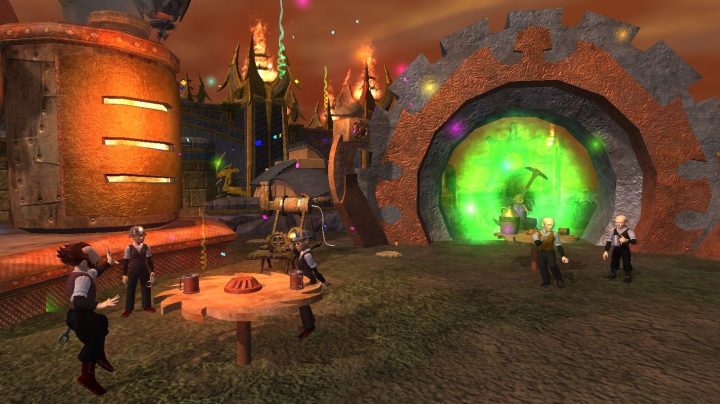
What video games can teach us about economic decision-making
What video games can teach us about economic decision-making

This is Part 4 of “Skin in the Game,” a special project of “Marketplace Morning Report” that looks at what video games, and the vast industry that surrounds them, can tell us about economics, business, money, careers and equity.
Today, Gameconomics:
The year was 2009. Depositors were in a hurry to cash out of an institution called EBank. It was a “bank run,” Silicon Valley Bank-style, but this one was triggered by a real-life embezzling CEO and a pile of bad loans.
What depositors wanted back was not their dollars, but their ISKs — the currency for a sci-fi game called Eve Online in which players build interstellar enterprises. This virtual bank suffering the run was a side project set up by players and not an official part of the game. Yet since the game currency had value, some players lost real money.
Players got a hard, real-world lesson in financial panics and the lack of federal deposit insurance. As for Eve Online’s official, company-sanctioned in-game economy, that’s still running well, for a reason.
“They’ve had a dozen or so economists on staff since the beginning of time for the game,” said Joost van Dreunen, a professor at the Stern School of Business at New York University. We caught up with him outside a game industry conference.
“They do this because they know that the economy is part of the gameplay,” he said. “You don’t just go and kill the dragon or fly the ship from A to B to deliver the package. There’s also managing a portfolio and an inventory and gathering resources to get to the next level. So in many ways, economy and gameplay are interspersed. They very much interact.”
In fact, economics are at work in so many games.
“Destiny 2 is a great example,” said Trevor Cardoza, a designer of video games and virtual experiences. “Before you have to spend glimmer, which is the basic currency, it’s like, OK, what is glimmer worth? Like, how much grinding and in-game action is glimmer worth? And then can that be turned into a salary? Can that be turned into X amount of money?”

Dmitri Williams at the Annenberg School of the University of Southern California, uses video games as a petri dish to study real-world behavior. For this, he said, some games work great, including a massive multiplayer called EverQuest II, which showed — in advance —what would happen when the real financial crisis hit in 2008.
“They match really well,” Williams said. “When people have the same incentives, people feel about their in-game money the way they feel about real-world money.”
Not all games, however, are useful to scholars. Williams mentioned a notorious World of Warcraft glitch, in which players noticed they could cause amusing mayhem by spreading a — virtual — plague, just to be trolls.
“They were gleefully running around and infecting all their friends, who were then exploding in fountains of horrific blood,” Williams said.
That’s not something any rational economic actor would do in the real world.
So researchers choose carefully which games to study. Williams has published widely on how about a quarter of our friends and family members are the real influencers of our purchasing decisions, be it a new dress or a new car. Williams and team work with a company based in Cyprus that makes a game called “World of Tanks.”
“It’s pretty fantastic for us, a great sandbox to play in,” Williams said. “We were able to look at when this player buys a virtual tank, do their friends then buy the virtual tank? If they play more, do their friends play more? And so we could find who the influencers are in their system.”
Something else game researchers have learned about real life: Despite many players’ well-documented toxic behavior, many others are surprisingly helpful to one another.

“So a game like Roblox, a game like Minecraft, much more friendly environment, people build things for other people to enjoy, to share with other people,” said van Dreunen.
Researchers can use games to study economic behavior. And players can use games to learn about money, business and economics. Van Dreunen has students who make money for tuition by streaming themselves playing video games.
“I would argue that most students today, and that the younger generations, they learn about the financial system through gaming more than any other source,” he said.
Tell us your own story about learning about money, business and economics from video games. Email morningreport@marketplace.org. And, learn how young people in Oakland, California, have found a pathway to crack into meaningful work at technology companies. Check out our “Skin in the Game” video series, just a click away on YouTube.
There’s a lot happening in the world. Through it all, Marketplace is here for you.
You rely on Marketplace to break down the world’s events and tell you how it affects you in a fact-based, approachable way. We rely on your financial support to keep making that possible.
Your donation today powers the independent journalism that you rely on. For just $5/month, you can help sustain Marketplace so we can keep reporting on the things that matter to you.












